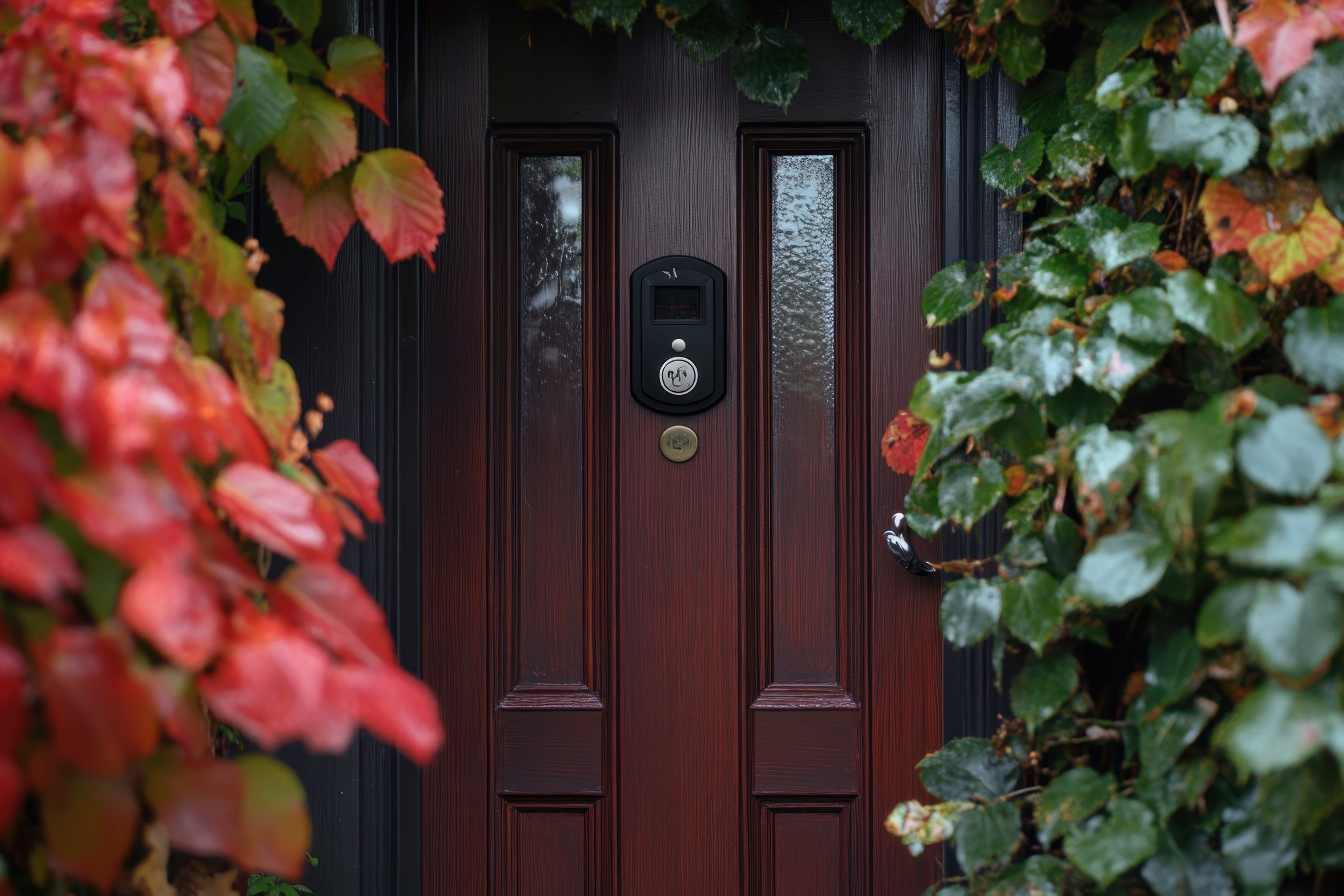
Image Source: 123rf.com
In today’s world of rising home break-ins, package thefts, and digital scams, keeping your home safe is about more than locks and alarms—it’s about what you say. Conversations at your front door can seem harmless, but they often reveal more than you realize. Whether you’re talking to a delivery person, a stranger, or even a neighbor, the wrong words can tip off criminals or put your privacy at risk. Here are 8 things you should never say at the front door if you want to protect your home—and your family.
1. “I’m Not Home Right Now”
This might sound obvious, but people still say it, especially through intercom systems or smart doorbells when they’re out. Letting anyone know you’re not home immediately signals vulnerability. Even if you’re speaking through a camera, confirming your absence can invite trouble.
Instead, use neutral language like, “We’re not available at the moment” or “Please leave it at the door.” Criminals often “test” homes to see if someone’s around before attempting a break-in. Don’t give them confirmation.
2. “I Live Alone”
Whether you’re chatting with a door-to-door solicitor or a utility worker, casually mentioning that you live alone is a safety risk. It lets people know that there’s no one else in the house who might witness something—or stop it.
Even if it’s true, it’s better to speak as if you’re not alone. Say things like, “We’re not interested” or “We’re good, thanks” to imply there are others in the home. Protecting your privacy starts with protecting your language.
3. “We’re Heading Out of Town This Weekend”
Vacation talk is a big no-no at the door—especially in earshot of anyone who doesn’t need to know. Sharing your travel plans, even with friendly neighbors or delivery people, increases the risk of burglary while you’re gone.
If you’re planning a trip, avoid discussing it where others can hear. Save the vacation stories for after you’re home. You never know who’s listening, and word of mouth travels fast in neighborhoods—and online.
4. “Come Back Later—We’ll Be Home Around 6”
Giving specific return times to strangers, canvassers, or even contractors can backfire. You may think you’re being polite, but you’re actually providing a window of opportunity for anyone with bad intentions.
Instead, say, “We’re not available today—please leave a card.” Keeping your schedule vague helps preserve your security and prevents patterns from being exploited. Don’t give away your daily routine.
5. “The Spare Key’s Around Here Somewhere”
It happens more than you’d think, especially when homeowners are scrambling for a guest or a family member locked out. Mentioning (or visibly searching for) a spare key in front of others can expose hiding spots you thought were secret.
Burglars know all the common places: under mats, inside flower pots, above door frames. Never reveal key locations during a front door conversation. If needed, use a smart lock or give a trusted neighbor access.
6. “That Alarm? It’s Never Armed Anyway”
Even if you’re joking, admitting that your security system isn’t used regularly is an invitation to trouble. Security decals and cameras are great deterrents—but only if potential intruders believe they’re active.
Avoid downplaying your system or making comments that suggest it’s non-functional. Always speak as if your home is fully protected—whether or not it is. Criminals rely on weak points, and they’re listening for them.
7. “The Kids Are Home Alone Right Now”
This one can seem innocent, especially if you’re asking a neighbor to keep an eye out or explaining why you can’t talk long. But even familiar faces might pass information along unintentionally.
Children are especially vulnerable targets, and letting someone know they’re home without adult supervision can put them at risk. Keep conversations general and avoid revealing who is (or isn’t) inside your home at the moment.
8. “We Just Moved In—Still Getting Settled”
New homeowners often mention their move-in status in casual conversation, but this tells others you’re likely distracted, unorganized, or still figuring out security. Thieves see this as a prime opportunity, especially before cameras, locks, or routines are firmly in place.
Instead, project confidence and normalcy. Say, “We’re all set, thanks,” rather than highlighting your new status. Settling in should also mean settling your boundaries—and protecting your home from opportunists.
Caution Is the New Common Sense
Your front door is your first line of defense—and what you say there matters just as much as what you lock. In an age where porch pirates and neighborhood scams are rising, keeping your words measured and private is just as important as any security system.
Read More
Now Recording: Here Are 5 Things That Your Ring Camera Knows About You
The Ultimate Guide to Fixing a Squeaky Door in 10 Minutes or Less
Leave a Reply